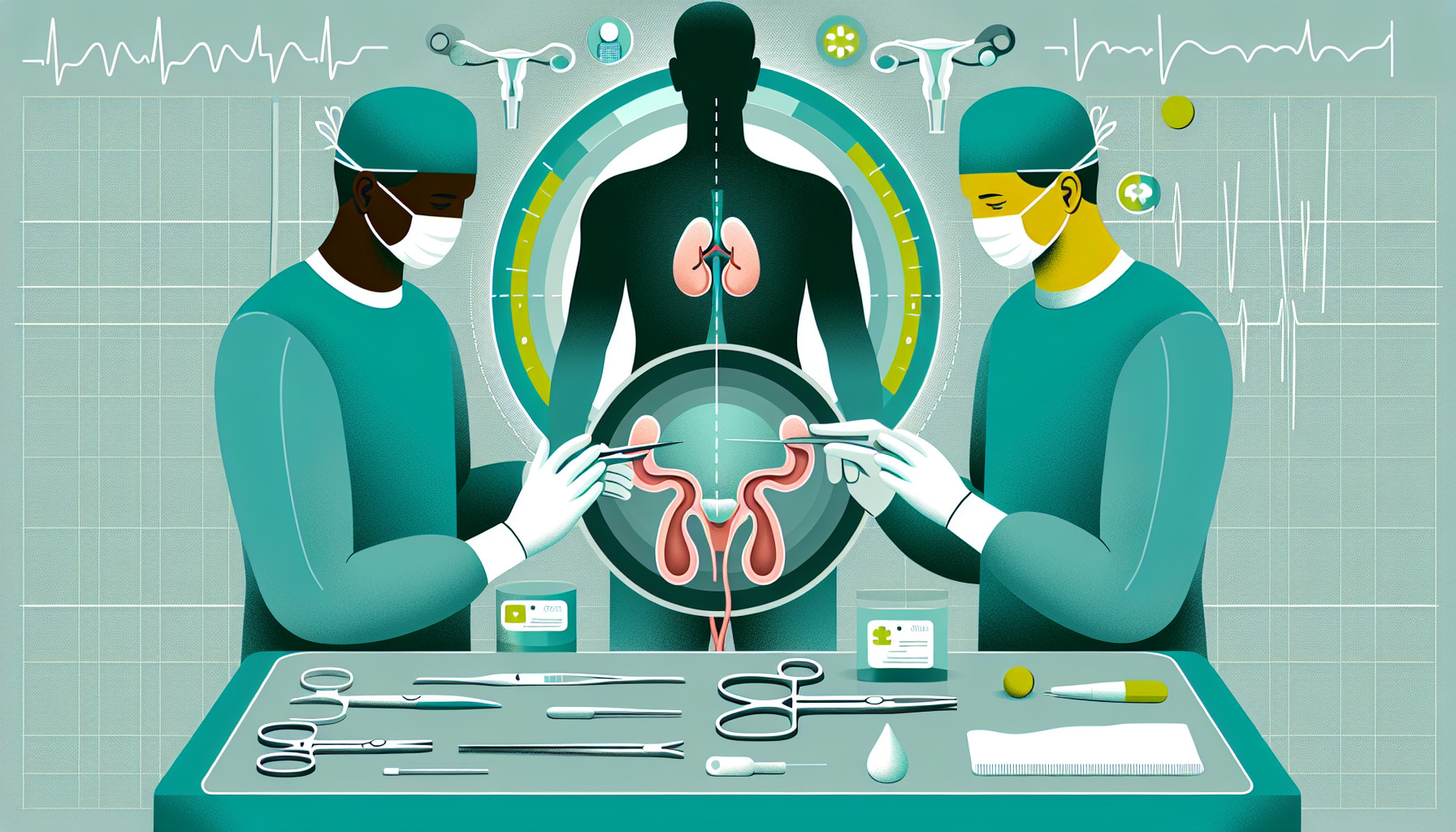Our Summary
This research paper is about a study that looked at the differences in outcomes and complications after a type of bladder surgery called radical cystectomy. In particular, they looked at whether using a stent (a small tube to keep a passageway open) during a procedure to reroute urine flow (urinary diversion) had an impact on the results.
They searched through various databases for studies on this topic and found three studies that compared results with and without stents. They found that the group of patients who had a stent placed during their surgery had a higher chance of major complications after the operation.
However, there was no significant difference between the two groups in terms of other outcomes and complications such as the need for readmission within 30 days, leakage or narrowing at the site where the ureter (the tube that carries urine from the kidney to the bladder) was reattached, urinary tract infections, or blockages in the ureter.
The researchers concluded that there was no significant difference in outcomes whether a stent was used or not during urinary diversion after radical cystectomy. Therefore, not using a stent could be a reasonable choice when performing this procedure.
FAQs
- What is the impact of using a stent during a urinary diversion procedure after radical cystectomy?
- Is there a significant difference in complication rates between patients who had a stent placed during surgery and those who did not?
- Does the use of a stent affect the need for readmission within 30 days, leakage or narrowing at the site where the ureter was reattached, urinary tract infections, or blockages in the ureter?
Doctor’s Tip
A doctor might tell a patient undergoing a cystectomy that the use of a stent during urinary diversion after the surgery may not significantly impact outcomes. This information can help the patient make an informed decision about their treatment plan.
Suitable For
Patients who may be recommended for cystectomy include those with bladder cancer that has spread to the muscle of the bladder, those with non-muscle invasive bladder cancer that has not responded to other treatments, or those with other conditions such as interstitial cystitis or neurogenic bladder that require removal of the bladder. Additionally, patients who are healthy enough to undergo surgery and do not have significant comorbidities may also be recommended for cystectomy.
Timeline
Before cystectomy, a patient may experience symptoms such as blood in the urine, frequent urination, pain during urination, or urinary tract infections. They will typically undergo various diagnostic tests such as imaging studies, blood tests, and a cystoscopy to confirm the need for surgery.
After cystectomy, the patient will undergo the surgical removal of the bladder, which may also involve the removal of nearby lymph nodes or other organs if cancer has spread. They will then undergo urinary diversion surgery to create a new way for urine to leave the body. This may involve creating a stoma (opening on the abdomen) for urine to drain into a bag, or using a segment of the intestine to create a new bladder.
After surgery, the patient will typically stay in the hospital for a few days to recover. They may experience pain, fatigue, and changes in their urinary function. They will need to follow up with their healthcare team for monitoring and potential complications. Physical therapy may be recommended to help with recovery and adjustment to any changes in urinary function.
What to Ask Your Doctor
Some questions a patient should ask their doctor about cystectomy include:
- What is the purpose of the cystectomy and why is it necessary for my condition?
- What are the potential risks and complications associated with the surgery?
- How will my quality of life be affected after the procedure?
- What are the alternative treatment options available to me?
- Will I need a stent during the urinary diversion procedure? What are the potential benefits and drawbacks of using a stent?
- How long will the recovery process take and what can I expect in terms of post-operative care?
- How often will I need follow-up appointments and what kind of long-term monitoring will be required?
- Are there any lifestyle changes or modifications I will need to make after the surgery?
- Are there any support groups or resources available to help me cope with the emotional and physical challenges of undergoing a cystectomy?
- What is the success rate of this procedure and what are the chances of the cancer recurring in the future?
Reference
Authors: Veccia A, Brusa D, Treccani L, Malandra S, Serafin E, Costantino S, Cianflone F, Ditonno F, Montanaro F, Fumanelli F, Ferro M, Mazzon G, Autorino R, Bertolo R, Antonelli A. Journal: Urol Oncol. 2025 Jan;43(1):54-60. doi: 10.1016/j.urolonc.2024.06.025. Epub 2024 Aug 20. PMID: 39164149
